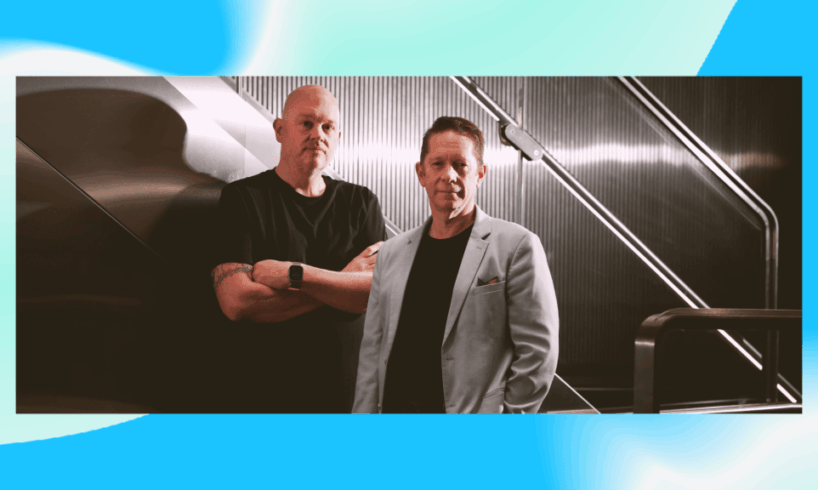
Welcome back to Neural Notes, a weekly column where I look at how AI is affecting Australia. In this edition: a challenger appears for sovereign Australian AI, and it actually wants to pay creatives.
Sovereign Australia AI is a newly launched Sydney venture aiming to build foundational large language models that are entirely Australian. Founded by Simon Kriss and Dr Troy Neilson, the company’s models are said to be trained on Australian data, run on local infrastructure, and governed by domestic privacy standards.
Related Article Block Placeholder
Article ID: 322896
Setting itself apart from offshore giants like OpenAI and Meta, the company plans to build the system for under $100 million, utilising 256 Nvidia Blackwell B200 GPUs. This is the largest domestic AI hardware deployment to date.
The startup also says it has no interest in going up against the likes of OpenAI and Perplexity.
“We are not trying to directly compete with ChatGPT or other global models, because we don’t need to. Instead, we are creating our own foundational models that will serve as viable alternatives that better capture the Australian voice,” Neilson said to SmartCompany.
Smarter business news. Straight to your inbox.
For startup founders, small businesses and leaders. Build sharper instincts and better strategy by learning from Australia’s smartest business minds. Sign up for free.
By continuing, you agree to our Terms & Conditions and Privacy Policy.
There are many public and private organisations in Australia that will greatly benefit from a truly sovereign AI solution, but do not want to sacrifice real-world performance. Our Ginan and Australis models will fill that gap.”
Its other point of differentiation is the plan for ethically sourced datasets. In fact, Sovereign Australia AI says that over $10 million is earmarked for licensing and compensating copyright holders whose work contributes to training. Though it admits it will probably require more cash.
“We want to set that benchmark high. Users should be able to understand what datasets the AI they use is trained on. They should be able to be aware of how the data has been curated,” Kriss told SmartCompany.
“They should expect that copyright holders whose data was used to make the model more capable are compensated. That’s what we will bring to the table.”
The price of ethics
As we have seen in recent weeks, copyright has been at the forefront of the generative AI conversation, with both tech founders and lobbyists arguing for relaxed rules and ‘fair use’ exemptions in the name of innovation
Kriss sees an urgent need to value Australian creativity not just as a resource but as an ethical benchmark.
AI development, he says, must avoid the “Wild West, lawless and lacking empathy” mentality that defined its early years and pursue a path that actively engages and protects local content makers.
There’s also a shift away from Silicon Valley’s ‘move fast and litigate later’ philosophy.
Neilson told SmartCompany he has watched international platforms defer creator payment until legal action forced their hand, pointing out the “asking for forgiveness instead of seeking permission” playbook is now coming with a hefty price tag.
Related Article Block Placeholder
Article ID: 322045
Moving forward together with content creators, he suggests, is not only right for Australia but essential if they want to build lasting trust and capability.
But compensation sits awkwardly with technical realities. The company is openly exploring whether a public library-like model, using meta tagging and attribution to route payments, could meaningfully support creators.
Kriss frames this not only as a technical necessity but as a principle: paying for content actually consumed is the backbone of sustainable AI training. The team acknowledges “synthesis is a tough nut to crack,” but for Neilson, that’s a discussion the sector needs rather than something to defer to lawsuits and policy cycles.
As AI industry figures urge Australia to model its approach on the US’ “fair use,” creators and advocates warn this risks legitimising mass scraping and leaving local culture unpaid and unprotected.
This legal ambiguity is rapidly becoming a global standard. Anthropic’s proposed US$1.5 billion book piracy settlement, a case promising $3,000 per affected title, is now on hold as US courts question both the payout and the precedent.
Judges caution that dismissing other direct copyright claims does not resolve the lawfulness of training AI on copyrighted material, leaving creators and platforms worldwide in limbo.
And in recent weeks, another US judge dismissed a copyright infringement lawsuit brought against Meta by 13 authors, including comedian Sarah Silverman. It was the second claim of this nature to be dismissed by the court in San Francisco at the time.
When funding and talent collide with ambition
The presence of multiple teams working in this area, such as Maincode’s Matilda model, suggests that Australia’s sovereign AI movement is well underway.
Neilson welcomes this competition and doesn’t see fragmentation as a potential risk.
“We applaud anyone in the space working on sovereign AI. We’re proud to be part of the initial ground swell standing up AI capability in Australia, and we look forward to the amazing things that the Maincode team will build,” Neilson said.
“The worst parties are the ones where you’re in the room by yourself.”
Behind the scenes, the budget calculations remain complicated. Sovereign Australia AI’s planned $100 million investment sits well below what analysts believe is required for competitive, world-class infrastructure. Industry bodies have called for $2–4 billion to ensure genuine sovereign capability.
While Neilson maintains that local talent and expertise are up to the challenge, persistent skills gaps and global talent poaching mean only coordinated investment can bridge the distance from prototype to deployment.
Transparency and Australian investment
According to Sovereign Australia AI, transparency is a platform feature.
“We can’t control all commercial conversations, but I think it would benefit everyone if these deals were disclosed,” Kriss said.
“Somewhat selfishly, it would benefit us, as users would understand how much of what we charge is going back to creators to make them whole.”
Neilson also welcomes the idea of independent audits.
Related Article Block Placeholder
Article ID: 280226
“How we use that data, may be commercial in confidence, but the raw data, absolutely.”
“This is critical for several reasons. Firstly, it helps eliminate the black box nature of LLMs, where a lack of understanding of the underlying data impedes understanding of outputs.
Secondly, we want to provide the owners of the data the opportunity to opt out of our models if they choose. We need to tag all data to empower this process and we need to have that process audited so every Australian can be proud of the work we do.”
The team also says its Australian and ethical focus is fundamental.
“We’re sovereign down to our corporate structure, our employees, our supply chain, and where we house our hardware. We cannot and will not change our tune just because someone is willing to write a larger cheque,” Kriss said.
He also said the startup would refuse foreign investment “without giving it a second thought”.
“For us, this is not about finding any money … it is all about finding the RIGHT money. If an investor said they would not support paying creatives, we would walk away from the deal. We need to do this right for Australia.”
Finally, the founders challenge conventional notions of what sovereignty and security mean for digital Australia.
Kriss proposed genuine sovereignty can’t be reduced to protection against threats or state interests alone.
“Security goes beyond guns, bombs and intelligence. It goes to a musician being secure in being able to pay their bills, to a reporter being confident that their work isn’t being unfairly ripped off. To divorce being fair from sovereignty is downright unAustralian.”
Can principle meet practicality in Australia’s sovereign AI experiment?
The aims of Sovereign Australia AI are an ambitious counterpoint to the global status quo. Whether these promises will prove practical or affordable for all Australian creators is still an open question.
And this will be all the more difficult to achieve without targeting a global market. Sovereign Australia AI has remained firm about building local for local.
The founders have indicated no plans to chase global scale or go head-to-head with US tech giants.
“No, Australia is our market, and we need this to maintain our voice on the world stage,” Neilson said.
“Yet we hope that other sovereign nations around the globe see the amazing work that we’re doing and seek us out. We have the capability and smarts to help other nations.
“This would enable us to scale commercially beyond Australia, without jeopardising our sovereignty.”
As for paying creators, the startup is still considering different options.
It says that a sustainable model may be easier to structure with large organisations, which, as Neilson puts it, “have well-developed systems in place for content licensing and attribution”.
But for individual artists and writers, he acknowledges, the solution could “look to systems like those used by YouTube” to engage at scale.
“We are not saying we have all the answers, but we are open to working it out for the benefit of all Australians.”





